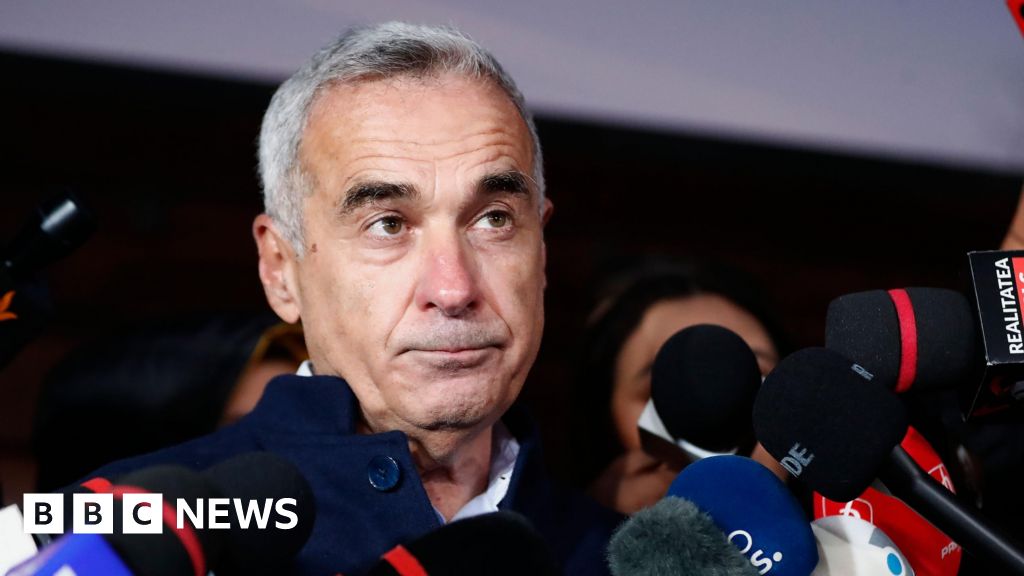Romania’s Election Rocked by TikTok Controversy, Recount Ordered
Romania’s historic presidential election has taken a dramatic turn, with the country’s top court ordering a full recount following allegations of “preferential treatment” given to surprise frontrunner Calin Georgescu by the social media platform TikTok. The unprecedented move throws the December 8th runoff vote into uncertainty and raises serious concerns about foreign interference in democratic processes.
The Constitutional Court rejected claims of illegal campaign financing from two losing candidates, Elena Lasconi and Prime Minister Marcel Ciolacu, but deemed the TikTok allegations worthy of further investigation. Georgescu, a radical with no political party affiliation, relied heavily on TikTok to spread his message, amassing a significant following in the weeks leading up to the election.
The TikTok Factor: A New Battleground for Democracy?
Georgescu’s unorthodox campaign, primarily fuelled by an explosive growth in followers on TikTok, surprised many political analysts. He garnered 23% of the vote, while Lasconi from the opposition Save Romania Union secured 19%, and Prime Minister Ciolacu, representing the governing Social Democrats, trailed behind.
The accusations against TikTok stem from concerns that the platform favored Georgescu, potentially violating electoral rules and impacting the integrity of the democratic process. Romania’s top security body, the Supreme Council of National Defence, raised the alarm, alleging that TikTok failed to properly identify Georgescu as a political candidate, thereby giving him an unfair advantage.
"Extremism is fought by voting, not backstage games," declared Lasconi, urging the Central Election Bureau to ensure a fair and impartial recount. Her statement reflects the growing unease among many Romanians who fear that the country’s democratic principles are under threat.
TikTok Denies Allegations, Citing Platform Policies
TikTok has vehemently denied any wrongdoing, asserting its commitment to neutrality and adherence to Romanian electoral laws.
A company spokesperson stated, "It is categorically false to claim his account was treated differently to any other candidate. When Romanian authorities contacted us to flag a number of videos that lacked identifiers… we took action on those videos within 24 hours."
The social media giant emphasizes its policy of prohibiting formal political advertising, arguing that its platform is simply a tool for individuals to express themselves and engage with others. However, critics argue that the nature of the platform, with its algorithm-driven content delivery system, can inherently favor certain voices and narratives.
Unprecedented Recount Sets Historic Precedent
The Constitutional Court’s decision to order a full recount is unprecedented in Romania’s post-Communist history. The Central Election Bureau now faces the daunting task of determining the logistics of the recount, including the personnel involved and the deadline for completion.
This extraordinary development raises critical questions about the role of social media in elections and the potential for manipulation. For tech-savvy readers interested in how technology intersects with democracy, this Romanian election offers a valuable case study.
Potential Ramifications: A Nation at a Crossroads
The outcome of the recount and the subsequent runoff election will have significant implications for Romania’s political landscape. If the recount confirms Georgescu’s victory, it could signal a shift towards more radical and populist politics in the country.
Conversely, a reversal of the results could highlight the vulnerabilities of democratic processes to manipulation through social media platforms. The Romanian situation also underscores the growing global debate surrounding the regulation of social media companies and their responsibility for promoting transparency and preventing the spread of misinformation.
What’s Next? A Nation Holds its Breath
As Romania grapples with this political turmoil, the international community watches closely. The recount process will be closely scrutinized, and any irregularities or attempts to manipulate the outcome could further erode trust in democratic institutions.
The battle for the Romanian presidency is far from over. As the nation waits with bated breath for the results of the recount, the debate over the role of social media in elections will continue to rage on.
[Invite readers to share their thoughts and contribute to the discussion in the comments section below].

_2024_11_27_12_33_08.jpg)